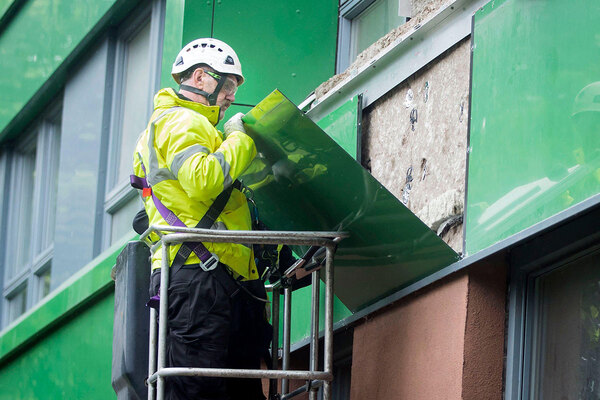Government extends waking watch replacement fund with additional £21m
The government has announced an extension and cash top-up to the Waking Watch Replacement Fund 2023.
The original £20.6m fund will now run until March 2026 and the government has pumped an additional £21.1m into the programme, bringing the total to more than £41m.
This cash will support the installation of a common alarm system, replacing waking-watch measures in all residential buildings where it is currently in place in England, regardless of where the costs of the waking watch fall.
The government advises that the common fire alarm system installed should generally be designed in accordance with the recommendations of BS 5839-1 for a Category L5 system.
Any residential building in England with a waking watch will be eligible, but the money cannot be used to recoup costs for work which has already begun.
Following the fire at Grenfell Tower in 2017, waking watches became increasingly common in high-rise buildings, as fire safety defects began to emerge.
Benjamin Ralph, head of building and fire safety at consultancy Hollis, said: “The new extended fund will help the move from the costly waking watch towards more reliable and automated detection and alarm systems.
“But these systems must not be seen as an excuse to extend the time it takes to carry out cladding remediation services. This should not be seen as a low-cost alternative to protect residents; work must still be carried out in a reasonable time frame.”
Guidance from the National Fire Chiefs Council described the 24-hour patrols – which often involve minimum-wage security staff with limited training – as the “least reliable” means of providing warning in a fire, as well as being “the most resource intensive”.
The government guidance on the replacement fund added that derived waking watches were “impracticable for a long-term solution and should only be a short-term measure”.
However, research by Inside Housing showed thousands of watches stayed in place for years amid a lack of clear guidance or funding for permanent alarm systems.
The cost of waking watches can be crippling for residents. Some have faced bills of more than £800 a month each for the service.
Sign up for our fire safety newsletter
Already have an account? Click here to manage your newsletters












